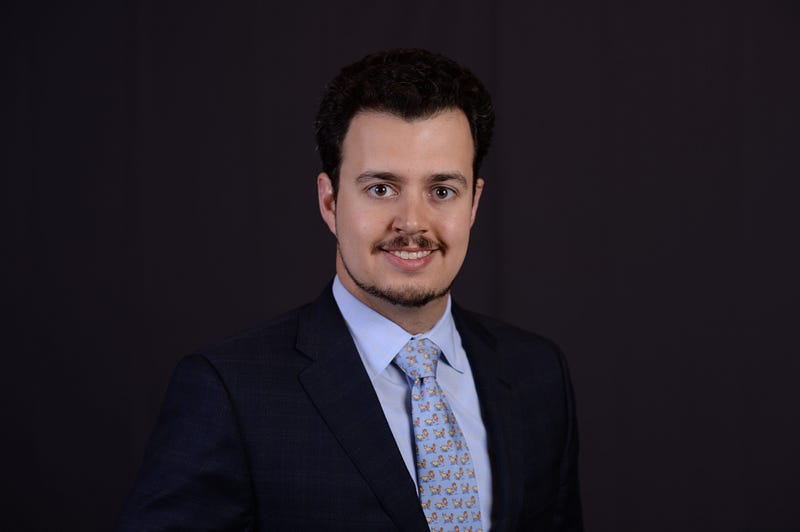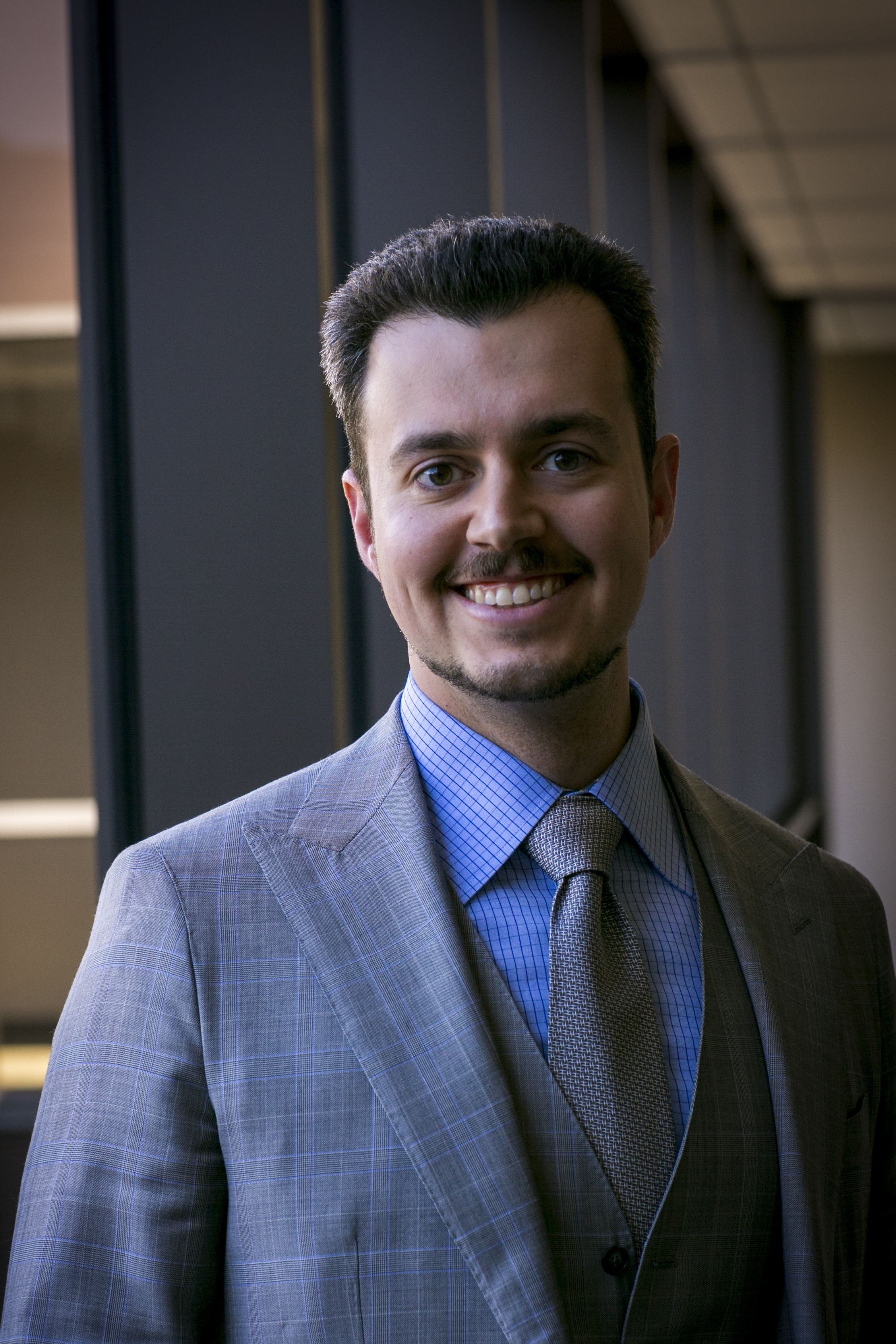While most people will confess that they don’t expect to live forever few carry a memento mori through their daily life. Just as we accept that our time on earth is limited we must recognize that we can’t take on every opportunity presented to us. Even though it may be lucrative, challenging, or exciting — the decision must come down to whether taking it on would prevent you and your team from achieving something even greater.
As a part of my series about “How to Slow Down To Do More” I had the pleasure to interview Max Gokhman, CFA who is the Head of Asset Allocation for Pacific Life’s multi-asset investment division, Pacific Life Fund Advisors (PLFA), with close to $40 billion under management. Max joined PLFA in 2014 to help build their investment process from the ground up. The resulting approach blends quantitative machine-learning models that analyze broad swaths of economic and market data with discretionary fundamental research that takes deep dives into ongoing geopolitical events. This expansive field of view allows Max and his team to generate unique insights into a diverse array of global asset classes.
Max has over 12 years’ experience as a global investor. Prior to joining Pacific Life Max was a Portfolio Manager for Mellon Capital where he ran a global macro strategy that traded equities, debt, currency, and commodities. Before Mellon Capital he was a founding member at Coefficient Global, a quantitative multi-asset hedge fund. Max received a BA in Economics and Psychology from Claremont McKenna College and is a member of the Milken Institute Young Leaders Circle. When he’s off the trading floor Max is at the race track, competing in an amateur road racing league.
Thank you so much for joining us! Can you tell us the “backstory” about what brought you to this specific career path?
I came to America as a refugee from Russia where the concept of meritocracy was as foreign as different flavors of cereal. Despite this, I held the belief that all individuals should be given a level playing field and empowered to win or lose entirely through their own determination and talents. Recognizing that investing can, at least in its romanticized form, be the ultimate form of meritocracy I sought to become a student of the markets soon after coming to the States.
According to a 2006 Pew Research Report report, 26% of women and 21% of men feel that they are “always rushed”. Has it always been this way? Can you give a few reasons regarding what you think causes this prevalent feeling of being rushed?
The advent of the always-on lifestyle came with the first corporate-issued Blackberry. Furthermore, as roles became more multi-faceted and hierarchies flattened becoming trapped in a web of other people’s emergencies became the norm for many professionals. Together these two elements can create a 24/7 dynamic full of distractions that results in the feeling of working all day yet getting nothing done.
Based on your experience or research can you explain why being rushed can harm our productivity, health, and happiness?
Productivity requires focus but feeling rushed removes our ability to concentrate. When we’re not productive we inevitably fall behind on what’s most important at work and at home. This, in turn, raises our stress — negatively affecting both health and happiness.
On the flip side, can you give examples of how we can do more, and how our lives would improve if we could slow down?
You will inevitably accomplish more by doing fewer tasks. Identify what’s most important in your personal and professional life and what is not. Don’t let the constant clatter of the latter prevent you from attaining your potential in the former. Checking off a million irrelevant to-dos can’t compare to the satisfaction of achieving one hard-fought goal.

We all live in a world with many deadlines and incessant demands for our time and attention. That inevitably makes us feel rushed. Can you share with our readers 6 strategies that you use to “slow down to do more”? Can you please give a story or example for each?
- Proactively identify the biggest themes. As a global investor I am continually bombarded by breaking headlines, major market moves, and, more recently, incessant tweets. Success requires recognizing that some of these are salient data points within broader themes and the rest are noise. My most important task then becomes identifying those few key themes and using each relevant development to support or refute my thesis.
- Recognize that your time is finite. While most people will confess that they don’t expect to live forever few carry a memento mori through their daily life. Just as we accept that our time on earth is limited we must recognize that we can’t take on every opportunity presented to us. Even though it may be lucrative, challenging, or exciting — the decision must come down to whether taking it on would prevent you and your team from achieving something even greater.
- Stay away from other people’s problems. Altruism is an admirable trait, but an excess of any quality can be detrimental. A lot of people struggle with recognizing that they should not be putting out every single fire within their organization, even if they’re at its helm. For one, it’s important to let your people experience failure as well as success. Lessons are learned from both. Second, trying to solve everyone else’s problems will leave you with no time for your own. To figure out whether you need to swoop in and save the day ask yourself what would happen if you didn’t. If you or your team would truly be compromised then there’s only one choice. However, if neither would be impacted it’s likely that in helping someone else you’re hurting your own initiatives and soon you’ll be the one asking someone else to put out your fire.
How do you define “mindfulness”? Can you give an example or story?
Mindfulness is the state of being fully engaged with the present, akin to standing at the top of a mountain right after a rainstorm. You can see clear and far. The minutiae of cars and people moving below you coalesces into discernable patterns that you can extrapolate. This is why so many investors strive to achieve this state. Our success rests on accurately projecting the patterns that shape the future of global economies and asset prices.

Can you give examples of how people can integrate mindfulness into their everyday lives?
Being mindful is as simple as being present — focused on the task at hand rather than all the other forces both inside and outside your mind vying for your attention. The simplest way to start integrating mindfulness is to turn off your phone, shut down your email client, close all other unnecessary applications and then work uninterrupted on whatever is most important. Start by doing this for just 30 minutes each day and add to that slowly. You’ll likely find that mindful “single-tasking” can be far more productive and less stressful than rushed multi-tasking.
Do you have any mindfulness tools that you find most helpful at work?
I have been an avid user of Headspace, logging 215 hours over the last three years. Headspace meditations come in every possible variety, from task-specific, like helping you get ready for a big presentation, to short exercises to regain focus. As with any other personal goal the most important requirement is commitment. Start with a daily 10-minute meditation when you wake up, and don’t add any more until it becomes as natural a habit as brushing your teeth. Over time you’ll find yourself falling into a mindful state throughout the day and situations that previously seemed chaotic will be far more manageable.
You are a person of great influence. If you could inspire a movement that would bring the most amount of good to the most amount of people, what would that be? You never know what your idea can trigger. 🙂
I would like to see capitalism once again become a force for good. Recently many people who’ve never experienced socialism as I have, from breadlines to operations without anesthesia, appear seduced by its impossible promise of prosperity for all. Yet it is capitalism that has throughout history brought the most innovation, progressive ideals, and an increase in the greater common good. While one may argue that the current system is far removed from its ideal state I nonetheless would like to see it restored rather than abandoned.
Thank you so much for these insights! This was so inspiring!
About the Author:
After 15 years working in Commercial Real Estate in New York City, Ashley Graber changed the coast she lived on and the direction of her life from Real Estate to the worlds of Psychology and Meditation & Mindfulness. Ashley came to these practices after getting sober and in the decade plus since, she now runs a busy mindfulness based psychotherapy practice at Yale Street Therapy in Santa Monica, CA where she see adults and children and speaks on the benefits of meditation and mindfulness practices.
Ashley is an Owner and Director of Curriculum for the next generation meditation app & mindfulness company ‘Evenflow’ and launched the company’s one to one online mindfulness mentoring program. Ashley also educates teachers and administrators in schools and presents in businesses across Santa Monica and Los Angeles.
Ashley was trained in Meditation and Mindfulness practices by prominent teachers; Elisha Goldstein, Richard Burr and Guiding teacher at Against the Stream Boston, Chris Crotty. Her Mindfulness Based Stress Reduction (MBSR) certification was done through The Center for Mindfulness at UC San Diego. Additionally, Ashley is trained by Mindful Schools to teach Meditation and Mindfulness practices to children and families. Ashley’s unique combination of psychotherapy, trauma reprocessing and meditation and mindfulness practices make her a sought after therapist and mindfulness educator and speaker. Her passion for the benefits of mindfulness practices as well as her enthusiasm for helping young kids and adults is the drive to teach these very necessary, life long skills and why she wrote and runs the Mindfulness for Families program at The Center for Mindful Living. This is where she teaches groups of families with children ages 6–12. Ashley was featured on Good Morning LaLa Land, presented on Resilience at the renowned Wisdom. 2.0 Mindfulness & Technology conference, and presented at the TED Woman conference offering an in-depth look at the profound psychological and physiological consequences of chronic stress, and how meditation and mindfulness practices can alleviate these effects.


